
IDENTITIES-GLOBAL STUDIES IN CULTURE AND POWER
Scope & Guideline
Navigating the Landscape of Global Cultural Identities
Introduction
Aims and Scopes
- Exploration of Identity Formation:
The journal examines how identities are constructed and reconstructed in response to sociocultural, political, and economic forces. It provides insights into the processes of racialization, ethnic identity, and belonging. - Migration and Mobility Studies:
A significant focus is on migration patterns and their implications for identity. The journal investigates how migration influences social stratification, labor dynamics, and cultural exchanges. - Intersectionality in Social Justice:
The journal prioritizes intersectional analyses that explore the interconnectedness of various forms of discrimination and privilege, particularly in relation to race, gender, and class. - Cultural Activism and Resistance:
It highlights cultural practices and movements that challenge dominant narratives and advocate for marginalized voices, focusing on resistance strategies employed by various communities. - Global Perspectives on Local Issues:
The journal adopts a global lens to analyze local issues of identity and power, encouraging comparative studies that highlight transnational connections and implications.
Trending and Emerging
- Digital Activism and Identity:
There is a growing focus on how digital platforms influence identity construction and activism, particularly among marginalized groups. This theme explores the role of social media in shaping narratives and fostering solidarity. - Decolonization and Identity Politics:
Emerging discussions on decolonization highlight the need for rethinking identity politics in light of historical injustices and ongoing colonial legacies, emphasizing the importance of Indigenous and marginalized voices. - Intersectional Feminism and Identity:
The intersection of gender and identity is gaining traction, with research exploring how feminist movements address the complexities of race, class, and sexuality in identity formation and activism. - Transnational Identities:
The journal is increasingly publishing on transnational identities, reflecting the fluidity of belonging in a globalized world and the experiences of diaspora communities navigating multiple cultural contexts. - Affective Dimensions of Identity:
Emerging research on the emotional aspects of identity formation and belonging is becoming prominent, examining how feelings of attachment, alienation, and resistance shape individual and collective identities.
Declining or Waning
- Traditional National Identity Studies:
There is a noticeable decline in papers focusing solely on static notions of national identity, as the discourse increasingly shifts towards fluid and hybrid identities influenced by globalization. - Eurocentric Perspectives on Identity:
Research that predominantly centers on European contexts is becoming less frequent, as the journal broadens its scope to include more diverse global narratives and experiences. - Static Racial Categorization:
The journal is moving away from rigid racial categorization frameworks, reflecting a growing awareness of the complexities and nuances of racial identities that resist simplistic classifications. - Homogeneity in Migration Narratives:
There is a reduction in studies that portray a singular narrative of migration experiences, as the journal embraces a more multifaceted approach that recognizes diverse migrant voices and experiences. - Essentialist Views on Cultural Identity:
The journal is increasingly critical of essentialist views that oversimplify cultural identities, opting instead to explore the dynamic and contested nature of cultural belonging.
Similar Journals

Slovo
Illuminating the Intersection of Literature and HistorySlovo, published by the University College London, School of Slavonic & East European Studies, is a vital scholarly journal dedicated to the exploration of Slavic languages and cultures, as well as the broader social sciences and humanities. Established with a commitment to advancing academic discourse, Slovo serves as a platform for researchers, professionals, and students interested in the dynamic intersections of literature, history, and cultural studies within Slavic and Eastern European contexts. Although it holds a Q4 ranking in both the Arts and Humanities and Social Sciences categories, the journal’s emphasis on fresh perspectives often invites innovative contributions that challenge conventional narratives. While lacking an Open Access option, Slovo remains integral for those seeking to navigate its multifaceted terrain, ensuring that emerging scholars and established academics alike can engage with rigorous research from 2012 to 2023 and beyond. With its headquarters in London, United Kingdom, this journal not only reflects the rich heritage of its academic lineage but also fosters a vibrant community committed to the exploration of Slavic and East European studies.
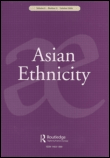
Asian Ethnicity
Illuminating the complexities of migration and identity.Asian Ethnicity is a premier academic journal published by Routledge Journals, Taylor & Francis Ltd that serves as an essential platform for interdisciplinary research in the fields of cultural studies, sociology, and political science. With an impressive impact factor and a prestigious ranking within the Scopus database, it has earned a place in the Q1 category for Cultural Studies and the Q2 category for Sociology and Political Science in 2023. This journal not only engages a community of scholars, professionals, and students but also addresses critical issues related to identity, migration, and social dynamics across diverse Asian contexts. The journal has consistently published cutting-edge research since its convergence in 2008, aiming to foster dialogue and understanding in the rapidly evolving landscape of Asian studies, while its location in the United Kingdom enhances its global perspective. While the journal does not currently offer open access options, it remains a valuable resource for in-depth analysis and scholarly discourse regarding Asian ethnicity and its multifaceted implications.

Transnational Screens
Navigating the Dynamic Intersections of Art and CommunicationTransnational Screens is a premier academic journal published by Taylor & Francis Ltd, focusing on the dynamic intersections of visual arts, performing arts, and communication in a globalized context. Since its inception, the journal has garnered significant recognition, featuring in the Q1 category for Visual Arts and Performing Arts and Q3 for Communication as of 2023, reflecting its influential contributions to these fields. With a Scopus ranking placing it in the 78th percentile in Visual Arts and Performing Arts, this journal serves as a vital platform for researchers, professionals, and students aiming to explore the implications of transnational narratives in contemporary media and artistic practices. The journal is accessible to a diverse readership and promotes open dialogue through its commitment to publishing innovative and interdisciplinary research from 2020 to 2024. As a key resource for understanding the complexities of transnational screens, it invites submissions that push the boundaries of traditional scholarship and engage with pressing global issues through the lens of the visual and performing arts.

SLAVONIC AND EAST EUROPEAN REVIEW
Bridging Histories, Cultures, and LanguagesSLAVONIC AND EAST EUROPEAN REVIEW, published by the Modern Humanities Research Association, stands as a pivotal academic journal since its inception in 1971, focusing on the rich cultural, historical, and linguistic landscapes of Eastern Europe and the Slavic-speaking world. With its ISSN 0037-6795 and E-ISSN 2222-4327, this esteemed journal provides a platform for scholars to share innovative research and critical analyses that shape the understanding of these complex regions. Although not open access, it maintains a reputation for rigorous scholarship, reflected in its categorization across multiple fields including Cultural Studies, History, and Literature in prestigious quartiles. The journal's Scopus rankings further illustrate its importance in the academic community, fostering a dialogue among researchers, professionals, and students who seek to deepen their insights into Eastern European studies. As a contributor or reader, you will find the SLAVONIC AND EAST EUROPEAN REVIEW an essential resource in navigating the intricate narratives that define this significant area of scholarship.
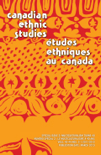
Canadian Ethnic Studies-Etudes Ethniques au Canada
Unraveling the Complexities of Diversity in CanadaCanadian Ethnic Studies - Études Ethniques au Canada serves as a pivotal platform for interdisciplinary scholarship focused on the complexities of ethnic identity and multiculturalism within Canada. Published by the Canadian Ethnic Studies Association, this journal not only examines the rich tapestry of Canada’s diverse population but also engages with significant themes in Anthropology, History, Sociology, and Political Science. With impressive rankings—Q1 in History and Q2 in Anthropology for 2023—this journal is recognized for its rigorous approach to research, fostering critical dialogue among scholars and practitioners alike. Although currently not Open Access, articles are made accessible to those in institutions and academic settings, expanding reach and impact. By publishing cutting-edge research from 1986 to the present, this journal continues to enhance our understanding of ethnic studies, making it an essential resource for anyone involved in the study of Canada’s multicultural landscape.
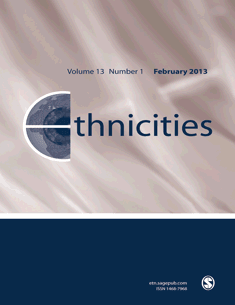
Ethnicities
Advancing Conversations on Ethnicity and CultureEthnicities is a leading academic journal published by SAGE Publications Ltd, dedicated to exploring the complex dynamics of ethnicity, cultural identity, and social interactions within diverse communities. Since its inception in 2001, the journal has established a reputable position in the field of Cultural Studies, evidenced by its impressive Q1 ranking in the Cultural Studies category and Q2 ranking in Arts and Humanities (miscellaneous) as of 2023. With a Scopus ranking that places it in the top 8% of journals in Cultural Studies, Ethnicities aims to facilitate critical discourse, innovative research, and scholarly exchange related to ethnicity across global contexts. Researchers, professionals, and students interested in investigating the intricate intersections of race, identity, and social policy will find valuable insights within its pages. For further engagement and access to its comprehensive articles, the journal is available without Open Access options, serving as a vital resource for understanding contemporary issues in ethnicity and cultural relations.
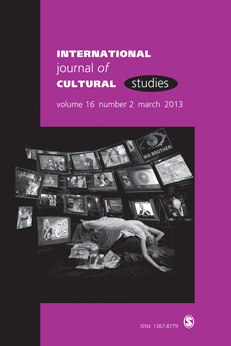
International Journal of Cultural Studies
Unveiling Innovative Perspectives on CultureInternational Journal of Cultural Studies, published by SAGE Publications Inc., is a leading peer-reviewed journal in the field of cultural studies. Established in 1998 and poised to continue its academic legacy into 2024, this journal maintains a prestigious position, reflected in its 2023 Q1 ranking within the cultural studies category and its impressive Scopus rank of #54 out of 1304, placing it in the 95th percentile among its peers. The journal serves as a critical platform for researchers, practitioners, and students alike, facilitating the dissemination of innovative ideas and research findings that shape our understanding of culture in a globalized world. Though not an open-access publication, it provides subscribers with rich insights and interdisciplinary approaches, making it crucial for anyone engaged in the study of cultural phenomena, societal developments, and theoretical perspectives.
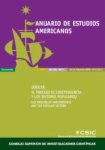
Anuario de Estudios Americanos
Fostering Dialogue Across the AmericasAnuario de Estudios Americanos is a prestigious journal published by the Consejo Superior Investigaciones Cientificas (CSIC), focusing on the multifaceted dimensions of American studies. With an ISSN of 0210-5810 and an E-ISSN of 1988-4273, this Open Access journal has made its scholarly contributions freely accessible to researchers and enthusiasts alike since 1994, thus fostering international dialogue in the field. Based in Spain, the journal holds a commendable status, ranking in the Q2 category for both Cultural Studies and History as of 2023, which underscores its significance in these academic realms. Additionally, its Scopus rankings of #653/1760 in Arts and Humanities and #633/1304 in Social Sciences highlight its competitive standing among global publications. Anuario de Estudios Americanos aims to promote scholarly discourse and research on the historical, cultural, and social dimensions of the Americas, making it an essential resource for researchers, professionals, and students dedicated to exploring this dynamic area of study.
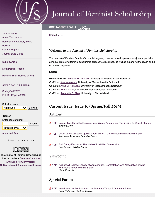
Journal of Feminist Scholarship
Engaging Minds, Elevating Feminist Scholarship.Welcome to the Journal of Feminist Scholarship, a distinguished academic platform dedicated to the exploration and advancement of feminist theories, gender studies, and social justice issues. Published by the University of Massachusetts Dartmouth, this open-access journal has been actively contributing to the field since 2011, ensuring accessibility to a diverse audience of researchers, scholars, and activists worldwide. With its commitment to interdisciplinary scholarship, the journal features peer-reviewed articles that challenge traditional narratives and highlight marginalized voices. Underpinned by a mission to foster critical discussions on gender, race, and identity, the Journal of Feminist Scholarship stands as a vital resource for those seeking to engage deeply with contemporary feminist discourse. Explore groundbreaking ideas and contribute to a more equitable academic landscape through this essential forum.
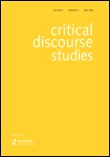
Critical Discourse Studies
Decoding the Language of Power and InfluenceCritical Discourse Studies is a leading journal in the field of discourse analysis and communication, published by Routledge Journals, a prestigious imprint of Taylor & Francis Ltd. Established in 2005, it has garnered a significant reputation for its rigorous scholarly articles that explore the intricate relationships between language, power, and social practices. With an impressive Q1 classification in Social Sciences (miscellaneous) as of 2023, the journal serves as an essential platform for researchers, professionals, and students seeking to delve into critical perspectives on discourse analysis. Although not open access, its comprehensive peer-reviewed articles are instrumental in advancing understanding in areas such as sociolinguistics, cultural studies, and communication theory. Critical Discourse Studies thus stands as a vital resource for those engaged in the study of discourse and critical theory, consistently contributing to the dialogue on how language shapes and is shaped by societal structures.